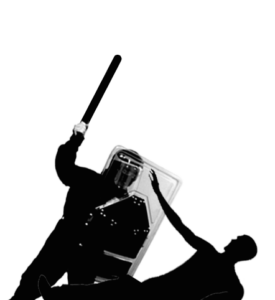

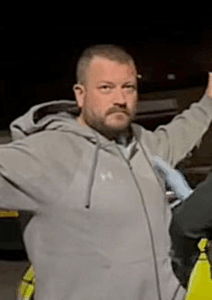


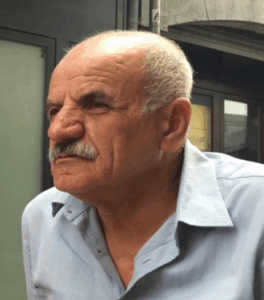
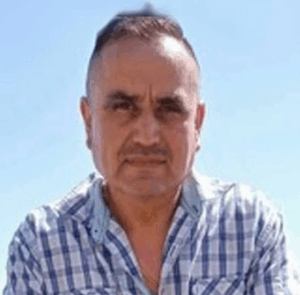
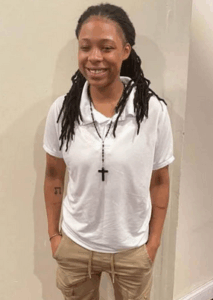
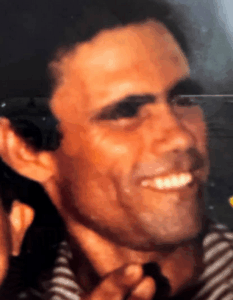
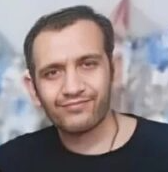
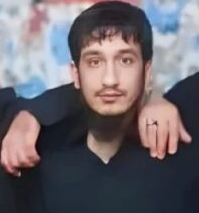
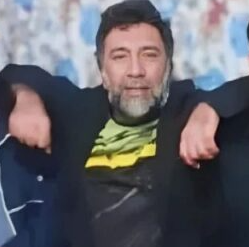
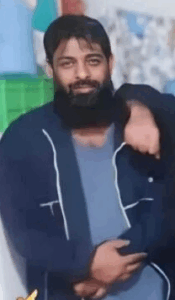
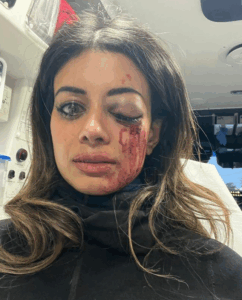

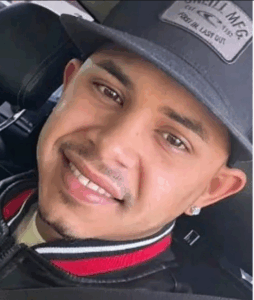
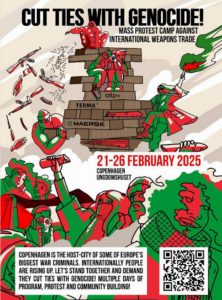
























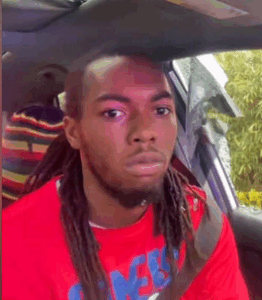

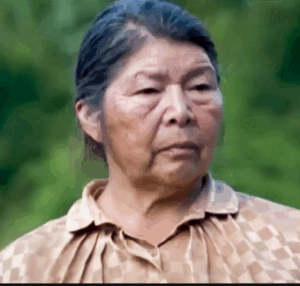
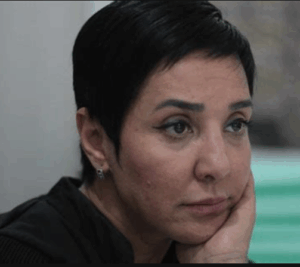
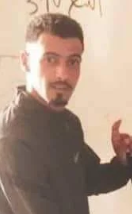

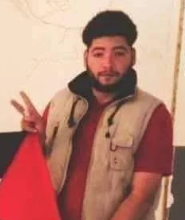
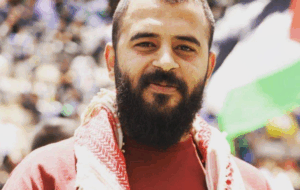
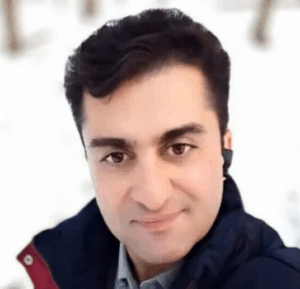
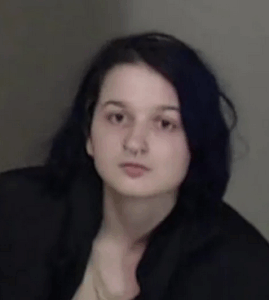


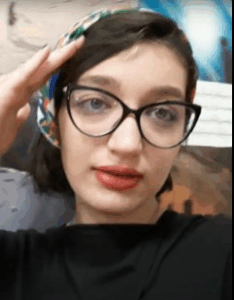


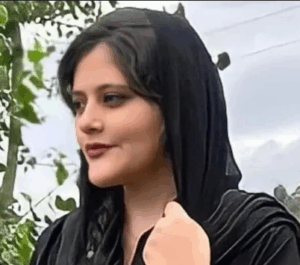
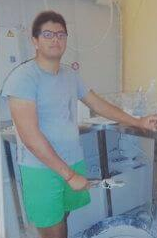
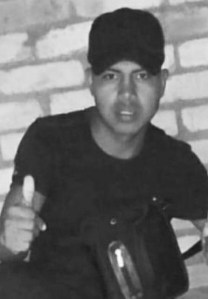

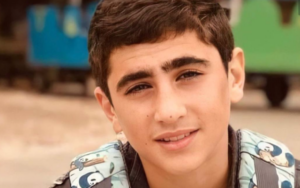
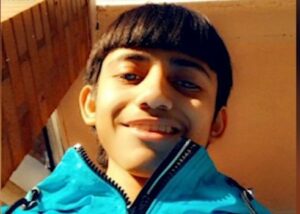

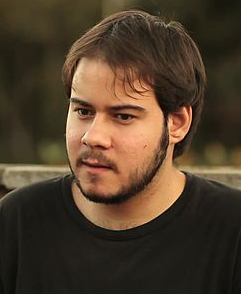
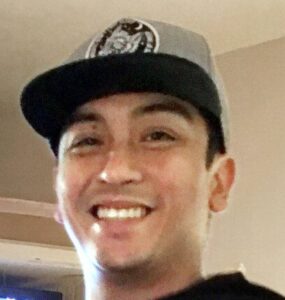
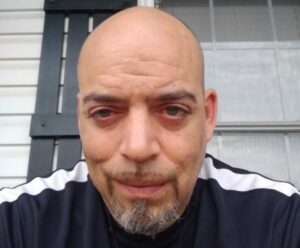

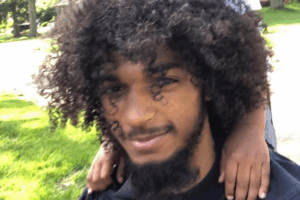

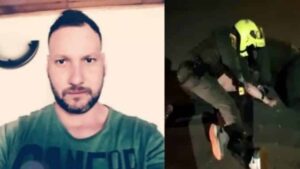


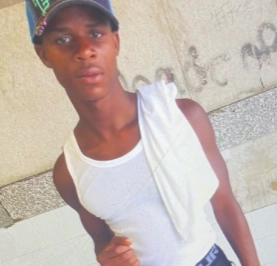
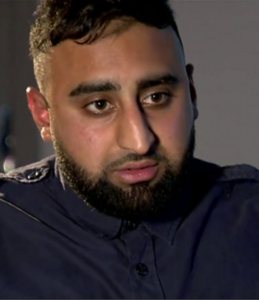
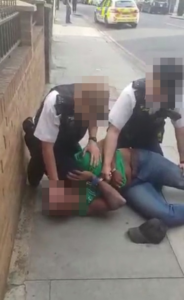

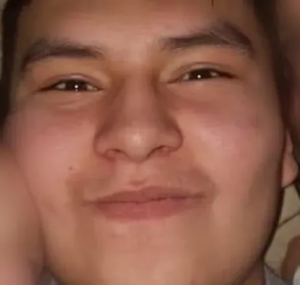
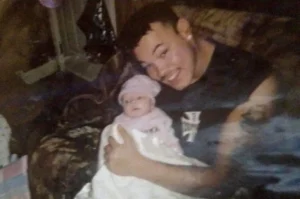

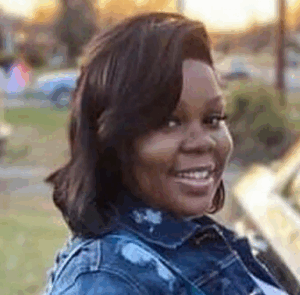

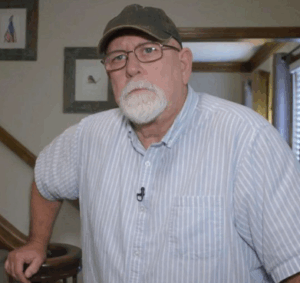
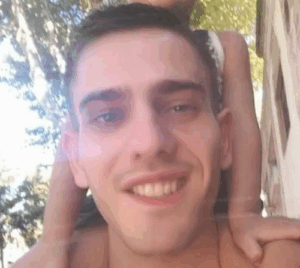
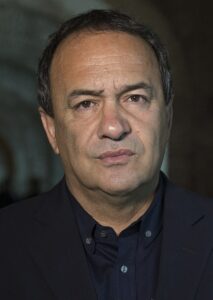

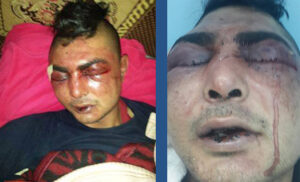
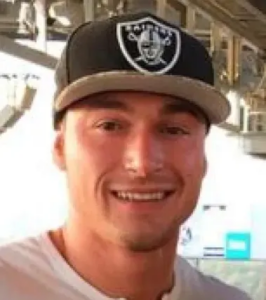


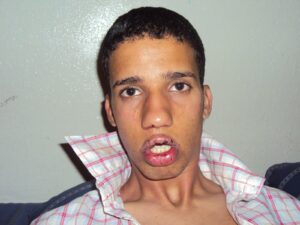
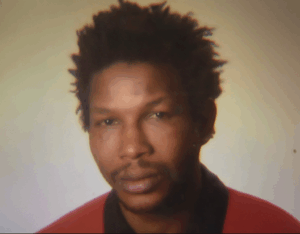
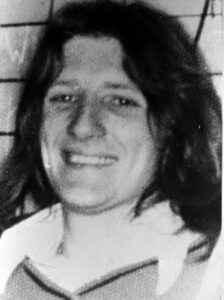
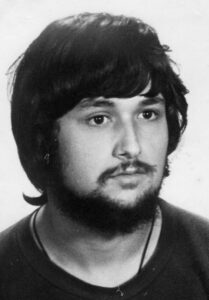

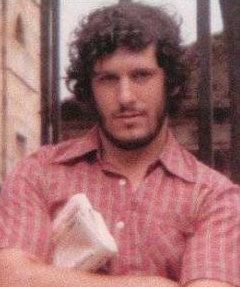

| AGRESSION DATE | VICTIM | PLACE | OUTCOME | LINK |
|---|---|---|---|---|
Our videos are hosted on a PeerTube channel. Click on the logos below to access it. Send us your images and we’ll add them there.
Police tied up and knocked down female teachers who participated in the protest against the arrival of the Israeli cruise ship Crown Iris. “Have a heart, we are your children’s teachers,” one of the two women cries desperately.
Video : https://videos.domainepublic.net/w/h3j2GyUVuU617Wsc27W7AT
Source : https://t.me/ivammolotov/54203
The intention and motivation for the event stems from the approach of a more comprehensive political analysis around prisons, migrant incarceration and oppressive continuities of the Israeli occupation, Greece and the EU. However, we do not want to directly compare the situation in Palestine and Greece, our goal is rather to connect the two geographies through their prisons and use of administrative detention. We also want to state clearly that Greece is fully complicit in the ongoing genocide on Gaza and the settler-colonialism in Palestine which can be seen through numerous military, political and economic ties and collaboration.
Administrative detention, a form of non-judicial imprisonment and separate from the criminal system, enables governments to incarcerate whole categories of people, indefinitely or without a release date in unregulated conditions. Those imprisoned are political targets of government policies that aim to de-humanise and scapegoat a population, whether they are Palestinians or migrants.
Overcrowding, substandard conditions and violence are used both as punishment and as a deterrent. However, in reality this is meaning- less because the empowered police or army manipulates and exploits the power of stop and search and can easily and without evidence or reason detain anyone. On the contrary, it is almost impossible for the individual, once incarcerated, to use legal means to gain freedom, because lawyers and legal pathways are obstructed and appeals against detention are easily denied due to a lack of legal oversight.
Administrative detention was, and is, a powerful tool of colonialism and fundamental to the creation and character of the Israeli settler colonial society. It is a punitive measure which has been used against Palestinians both in the territories occupied in 1967 and in historic Palestine (the land colonised by Israel in 1948) and has its roots in British Law during the British Mandate of Palestine, showing its (settler-) colonial roots and continuities.
In Greece, as well as across Europe, non-European and racialized people are detained in detention prisons (so-called Pre-Removal Detention Centres – PRDCs) solely because of their migration status. Within administrative detention, detainees have no definite release date and often have no information on their own cases. Detention prisons supposedly function to facilitate deportation, but, in reality, they act to expand the capacities of prisons.
In Palestine the system of apartheid is clear: occupation of land, control of bodies and movement through military means, segregation of the legal system, control of access to water, food and fuel and the restriction of life based on identity and official documents. In Greece we argue that an apartheid system has also been enforced although we don’t attempt to equalize the situation with Palestine, but instead point to the similar systemic apartheid practices of successive Greek governments towards those claiming asylum.
This is clear in the difficulties in accessing and renewing ID documents and the emphasis on the ‘legalisation’ of a person which impacts and controls every element of life: access to healthcare, housing, employment and education. It is also obvious in the continuation, expansion and securitisation of substandard camps as the only housing option.
Such things control the movement and bodies of people in Greece creating segregation, barriers, limitations and a 2-tier society. The prison system and administrative detention are fundamental in maintaining control and fear which is re-enforced on a daily basis by police harassment and ID checks.
Apartheid and segregation are clearly demonstrated in a nation-state’s legal system and it’s prisons. In Palestine administrative detention and military courts are tools that aggravate the denial of legal rights, the use of physical violence and mental torture. In Greece, prison conditions, lack of legal support and psychological trauma due to unknown release dates justify the continuation of administrative detention as a method of control on those claiming asylum. In both places such ‘legal’ systems of abuse could only be tolerated by a certain percentage of the population, those with ‘Israeli’ or ‘Greek’ citizenship would never accept such treatment.
The interventions by lawyers and ex-prisoners from Palestine and Greece, will be centered about the legal and political realities and implications of administrative detention, the horrific conditions and ways to struggle and resist administrative detention and prisons from inside and outside.
We call for a greater recognition and understanding of administrative detention as a discrete form of imprisonment with a particular position in the structure of „liberal democracies“.
We call for solidarity with people that are in administrative detention, and for support for their struggle against this system, which we relate also to the violent practice of prisons generally.
Abolish all detention centers!
Fire to the prisons!
Freedom for Palestine – Stop the genocide, end the occupation!
Free them all!
I started taking on cases of administrative detainees in mid-2021, when I met the House for Empowerment & Emancipation and participated in its actions and visits to the women‘s department of the Amygdaleza Detention Center. Since the collective operates horizon- tally, without using „experts“, I did not meet the detainees simply as a lawyer. By listening to their stories and their requests – and through discussions with other comrades – I also gained some more practical knowledge. Thus, from the position I have today, I would like to explain the legal regime governing administrative detention in Greece in a way that makes it easier for all of us to understand – so it can actually be used as a tool in our common struggles, regardless of whet- her we are local or a migrant and whether we have legal status or not.
Administrative detention is ordered by a decision of the police director in cases where migrants are supposedly suspected of absconding or endangering public order or avoiding or obstructing the preparation of their departure. If no objections to this decision are raised within 48 hours, a deportation order is issued and detention is extended until the deportation is completed. Detention may not exceed 18 months. Detainees must be informed of the content of the detention decision, as well as of any other document, in their own language or in a language they are deemed to understand. In practice, this is often not respected, but it is difficult to prove that the police have breached this obligation. If objections before the police director are not raised in time or are rejected, they may be brought before the competent administrative court of first instance. The decision issued is not subject to appeal but may be revoked if new grounds for objections arise.
Although, as mentioned above, objections to detention before the police director must be made within 48 hours, in Athens they are in practice accepted at any time. The claim that a person is suspected of absconding may be justified by several reasons, including the lack of a fixed address of residence and means of subsistence, as well as the lack of an identification document. The lack of an address can be resolved by presenting a house contract or, if none exists, a hosting declaration. The declaration should be made by a person who has a rental contract (or owns a property) and is legally residing in the country, as his/her signature on the declaration must be certified as genuine. The existence of means of subsistence can be proven by any previous employment contracts and/or tax returns. If these do not exist, a declaration (e.g. from a relative or the person making the declaration of accommodation) can be made to cover the prisoner‘s living expenses. The lack of an identity document is usually solved by presenting an original passport. However, it is often best not to present a valid passport to the police as, if the objections are rejected, having a passport in the hands of the police will make deportation much easier. It is advisable to present the original expired one, if available. If objections are raised in the Administrative Court of First Instance, the original passport doesn‘t need to be presented – a certified copy is sufficient. Although it is accepted that the asylum seeker‘s card is also an identification document, the police usually require a passport.
A person‘s ‚risk to public order‘ is justified by criminal convictions with a sentence of more than one year. Often police decisions do not sufficiently establish the risk to public order (e.g. they do not mention specific decisions or may even refer to acts for which an acquittal has been issued!). Therefore, it is advisable in these cases for a lawyer to investigate the alleged prosecution in the prosecution office.
Objections to detention orders may also include evidence that detention conditions and the detainee‘s personal situation make detention a particularly harsh measure – for example, when a detainee has health problems. It is important to note that medical care is almost non-existent in Amygdaleza Detention Center, as there is only a doctor once a week. There is no provision for detained substance abusers. In the Taurus Detention Center (Petrou Ralli), a therapist from the Okana visits once a week. The tragic shortcomings of detention centers are unknown to most people, so that the detainees become invisible. It is therefore very important that these deplorable conditions are denounced as much as possible, to make the prisoners‘ voices heard.
During detention and in view of deportation, family life and the best interests of the child should be considered. Detention is often lifted, and deportation postponed, if the detainee has family members in the country. The detention of minors is contrary to Greek legislation, the Convention on the Rights of the Child and EU legislation. Recently, families with minors have been detained at the Amygdaleza Detention Center under the pretext of a lack of stable residence, but this criterion is arbitrary and is not mentioned anywhere in the detention decisions.
The detention of asylum seekers is illegal. However, this rule may be waived in cases where the identity of the applicant needs to be established, where there are ‚reasonable grounds‘ for believing that the application has been made to prevent or delay deportation and where there is a risk to public order. In the last year there has been a major problem of a shortage of interpreters, resulting in delays in the examination of asylum applications and consequently in prolonged detention.
Migrants in administrative detention are not provided with legal assistance by the state, except for asylum seekers. Even then, communication with lawyers is often difficult. Whether or not there is a lawyer available, it is important to have a basic knowledge of the legal procedures, so that we can find ways to use the tools of the system against it, alongside all our other actions, until the total destruction of detention centers.
Q: How many Palestinians are detained in administrative detention in Greece?
A: There is published data about administrative detention. According to the data, in the first half of 2024 there were around 600 people from Palestine out of 12700 total people in administrative detention.
Q: Do the detainees have rejected asylum procedures, or what is the situation?
A: You can have an active asylum process and still be detained, at least until they check exactly your identity. And most of the time, the process is very arbitrary.
Two people we had contact a while ago in Korinthos detention center were found in a shipwreck. They were put directly into detention and denied the right to asylum. This is a strategy: taking people directly from the border and detaining them to prevent them from taking asylum.
There is the devilish practice of cops around Victoria, where a lot of migrants arrive searching for the “UN-Office”. Cops just take them to detention prisons. At this time, they don‘t have a phone/sim card or contacts to reach out to. The cops keep them there as long as they can, then, if they manage to start the asylum process, the asylum is rejected, and they can again be kept in detention.
If you try to struggle against unlawful detention in the detention prisons, they just make it a lawful detention by rejecting your asylum claim, and then detaining you again.
Q: Question about medical care that people receive, with only 1 doc- tor, one visit per week,which is not enough, especially for the question of substance use.
A: From what I have seen there are both court decisions that turn a blind eye to the health situation and court decisions that mention it, but none go as far as changing the situation. When it is mentioned, it‘s more about the health situation of the detainee and less about the objective health issues in the detention center.
The detention center often denies access to medicine and when we try to give medicine through visits, they also often deny it.
Even when people have been taken to doctor, the doctor often just rudely tells them to go away again.
The Legal Frame of Administrative Detention in Palestine:
Speech by a Palestinian human rights lawyer with experience of more than 28 years working on human rights in the occupied Palestinian territories with special focus on the Palestinian prisoners and military court system.
Good evening and thank you for inviting me tonight to share the work that we are doing against administrative detention. The laws are based on British regulations from 1945. They used these regulations until the 1970s, mostly against Palestinians. After the occupation in 1967 they started to use the military orders, before they used a legal frameworks. The military officers in the occupied territories can arrest just about anyone, only based on “secret information”, for between 1 and 6 months. This can be extended indefinitely. Some people spend 5, some 8 years in detention. In the first intifada one detainee spent 8 years in continuous detention. They use administrative detention against anyone – children, activists, students. They don’t need to prove anything in front of the court. There are just secret files shown; even the lawyers cannot see them in the court. So, we need to defend people blindly. Then the judge decides if they cancel the order or confirm the administrative detention order as it has been issued by the military. The Ministry of defense/ security grants the authority to other officers to issue administrative detentions.
In 2002, there was a new law dealing with foreigners – meaning not-Israelis – which is similar to administrative detention but not limited to 6 months. In 2005, Israel withdraw from Gaza. Since then, they deal with Gazans as people from ‘not occupied territory’. So, for example, after the genocide in October 2023 they arrested thousands of Palestinians in Gaza based on secret information. This information has to be reviewed by a court every six months.
In the last years, they have arrested thousands of people in Gaza: women, children, sick people, and doctors who are being held in administrative detention with arbitrary reasons. They never disclosed the exact number but last September 2024 the state said that they have 3400 people arrested under that law. But we estimate that they arrested much more than this number.
In the exchange they have already released 1000 people, but we estimate that they have at least 10.000 more detained.
Before October 2023, 1200 people were detained in the Westbank. After October 7, they arrested thousands of people. There are 3400 detainees today from Jordan and the Westbank. This includes more than 100 children, who were also arrested because of secret information, without providing them with any
information.
Administrative detention is the worst. It’s a kind of torture, because neither the detainee nor the family knows how long the detainee will stay inside. For example, sometimes, on the last day before the ex- tension of the detention order, the detainee will not be informed until late into the evening, making them believe that they have been set free, only to be informed that it has been prolonged again.
The detainees have initiated a lot of activism against detention: boycotts of procedures, disobedience of orders, refusals to stand, refusals of meals, and hunger strikes. The strongest of these are hunger strikes, of which there are two types. Firstly, there are collective hunger strikes where all the detainees are striking.
This happened in 2014, where administrative detainees went on strike for 9 weeks. But it then stopped because in the middle of the hunger strike, security activity happened in the Westbank and Israel attacked Gaza in July killing a lot of civilians. So, the detainees said to stop the hunger strike. The original goal of the hunger strike was to limit the use of administrative detention to very serious instances and to limit it for one year.
Starting from 2011, there have been individual detainees that initiated their own hunger strikes. Khader did a 66 day-long hunger strike, which was the longest individual hunger strike in Palestinian resistance history in 2012. He was successful and was released. He was then detained multiple times again, going on hunger strike every time. He went on hunger strike five times, but on the 6th hunger strike he was charged for leading and inciting violence in prison. And the last time, they left him to die. On 1 May 2023, after 87 days of hunger strike, he collapsed and unfortunately we lost him.
Several other individuals did a hunger strike, 120 days of hunger strike. Some of them received vitamins at some point, but Khader always refused them. Currently, administrative detainees cannot do hunger strikes, even though the number of detainees is the largest ever – even compared to the first intifada. But the political decision is so difficult, because all Palestinians and supporters are focused on the genocide. The military is using this and increasing and arresting more people. 2 days ago, they decided on several months of detention for a 14-year-old child.
Of course, administrative detainees are held in the same prisons as the other Palestinian prisoners. The majority of detention prions are in occupied Palestinian land. The conditions are very difficult, with security forces raiding the rooms, physically attacking detainees, confiscating all clothes, property and food, and cancelling all family visits.
The Red cross is also not allowed to visit. And they closed all health clinics inside the prisons. This creates a lot of problems, especially for prisoners with health issues. Just yesterday, another Palestinian detainee died due to health neglect and 62 died during 2024.
One person died last year who was cancer patient: people were aware of his condition and they still refused to let him go outside and die with his family around him. Since 2015, every detainee that dies in- side the prison is kept inside the prison, and they refuse to give the bodies to the families
Q: Can you tell us more on the continuity regardless of governmental change related to administrative detention?
A: For sure for us as Palestinians there is no difference between the governments. For the laws that are relevant for imprisonment it makes no difference what government is ruling. Even in front of the Israeli high court, this justice system doesn’t offer any justice to the Palestinians, not on the settlements, not on the targeting by settlers.
The high court was always making the occupation, making these crimes, legal and institutionalized. Especially on the prisoners issues the numbers of administrative detainees increased after the Oslo agreement and they detained a lot of people opposing the agreements. It was never about who is in government, but it was always used to oppress the people.
During the first intifada, during the Oslo agreement period, during the 2nd intifada, they always arrested and attacked the Palestinian villages and cities arresting hundreds of people. And we always had 1000, 2000 people detained. Immediately after the break of the 2nd intifada the number went higher and higher till reaching 12.000 people in detention. And since then, the number has always been this high. And there is the anti-terror law, which was issued in 2016, it was confirmed by the majority of all the political parties, which all agree on the racist laws which target Palestinians, and especially Palestinian citizens of the state of Israel which become citizens of 2nd or 3rd class.
Q: How is the situation with the lawyers, how accessible is it to
visit their clients, can they take cases. Do they receive any threats by taking these cases. In Iran what is happening is that when a lawyer is defending political prisoners the lawyer is the next person to end up in jail?
A: It’s a bit different but also in occupied Palestine the lawyers face a lot of restrictions. They can ban the lawyer for two months from meeting the detainee, and you cannot appeal against it successfully.
In this war they made the 2 months to 6 months. We were not all- owed to meet the detainees for 6 months. In the first 3 months no visit at all
was allowed inside the prison. Now it’s again possible to visit but under heavy restrictions. You can only visit 5-7 people in a month. You can
sometimes only speak for 5 or 7 minutes, even if 40 minutes should be allowed.
You are not allowed to bring any notes in Arabic. This month they prevented 17 lawyers from visiting, claiming that these lawyers were trying to bring messages from the families to the detainees. And of course, also some lawyers have been arrested under claims of destroying evidence or supporting terrorism, so yes, lawyers can be targeted as detainees as well.
Activist and Ex-Detainee in Occupied Palestine:
Speech by Hadeel – a Palestinian activist and ex-prisoner who was held in administrative detention by the Israeli occupation forces and was released during one of the latest prisoner exchange deal.
I’m currently free from prison. From the prisoners’ perspective, they will just tell you whatever you say, you will be under administrative detention. On the crossing border between Palestine and Jordan I was stopped by Zionists. They didn’t ask anything, they didn’t do anything, they just said you’re under arrest. They took me to a prison completely isolated from the world for 8 days. After, they took me to an interrogation center and there they told me that I’m under ad- ministrative detention, but the file is kept secret. And there is not- hing to speak about. After 22 days of imprisonment, they took me to court. And I got the order for 6 months of detention. After the first 6 months ended, on my last day, they told me that I might be able to go home. I got ready but nobody came, the wards said that while they didn’t renew my order, there is also no news yet. The next day I said to the guard that I received no new order, why am I still in prison?
And then I got the news that I have a new order for 4 months. Lu- ckily, I only had to spend 2 more months then the prisoner exchange came, and I was freed.
After October 7, prisons were the first thing that was attacked. What they did here is that they made the prisoners fully isolated from the world. So that the prisoners did not know what was going on in Pa- lestine and around the world. For the first months they were denying lawyer visits, they were denying everything. Only after 5 to 6 months was it again possible to get visited by a lawyer, and these lawyers were the only way to reach out to the outside world.
I would always be isolated for 2 months, only every 2 months a lawyer was allowed to visit me, and I could hear news from my family.
The conditions are horrible, the prison is very old, and the humidity is crazy, because it close to the sea, but we could see only fences. The second method of torture they use is the starvation regime. They star- ve us in a systematic way. They give you food to keep you from dying, but you are never full. I lost 22kg
We had no health care at all, we were denied visits to the doctors. Also, people with cancer were not treated. We had to fight for ever- ything, we were only allowed to go to shower for one hour out of 24 hours. And in this one hour we had to manage 22 people for everyone to shower.
We were continuously beaten, we were dragged, we were all the time strip searched. All the time the rooms were locked, and then they would invade the cells at any time, throwing teargas and starting to beat people. For visits from lawyers and for court dates we were al- ways handcuffed. There was a systematic torturing of prisoners. Most of the women prisoners were mothers, activists, students, grandmot- hers. The situation was almost impossible [to be], it was unbearable. The only thing that kept us strong was to have each other. All this was trying to break us. I cannot say that we were strong all the time, because of the torture. But Palestinian prisoners have always been the first defende line of the Palestinian cause, and death was never able to take this away. The Zionists do this to break the resistance, but they also know that the Palestinian resistance keeps due to the Palestinian detainees.
The judge is my enemy; the institutions of law I’m held inside are the ones of the enemy, just made for holding prisoner Palestinians. We are stronger because we understand who we are, why we are there and we understand that it’s a fight for life, for a free Palestine. You are fighting for resistance, not just to get free. This is obvious. Gaza showed to the world the two faces of Zionism and US-Imperialism. Just in the last days 70.000 people were displaced in the Westbank. The prisoners fight, our fight is a fight for resistance that needs to be continued. And we face these conditions, this brutality and violence on a daily basis.
The only way to organize and to resist, it to not stop.
US and western governments have imposed violence on the move- ment of Palestine, they are beating people on the street, at US univer- sities or on the streets of Europe. We are facing the same enemy, the same brutality. And the only way to fight this, to dismantle this sys- tem, is by fighting together against this system of imperialism.
Thank you.
Q: We knew that the exchange deal has liberated a lot of Palestinians but also a lot of Palestinians have been rearrested in the last days
A: Only 3 of the ones of this exchange were rearrested. They all took us to another interrogation session after the exchange, threatened us to not talk to anyone, to not talk to media. And they want to exile Palestinians from Jerusalem, to take their Jerusalem identity away from them.
Q: Are there ways that prisoners, that women in the prison, were organizing inside the prison?
A: Organizing is denied at the moment, they are trying to create a situation of instability in the prison. We were facing new rules and new orders every day, so that we are not able to organize against it. 62 prisoners were killed in Zionist prisons since October 7th. But there is collective understanding and support between the prisoners. But there is no actual organizing, because it is denied, and it would cause harm to the prisoners, it would be very hard. For example, one time we collectively refused to eat our meals. In the morning, we were all handcuffed in the yard; all our clothes were taken away, everything in our rooms was taken away, and we had to fight to get back food mate- rials like a plate and a fork. And, I forgot to mention that, we did not have hairbrushes, so we needed to brush our hairs with forks. Nor- mally organizing would make it easier to fight for these things, but with this instability it’s difficult. And the price you pay for organizing inside the prison is very high, at least these days.
Q: How was the day of the release? How was it meeting your family and friends again?
A: We did not know that we were released, that the deal had become reality. The day before the release at 1pm they told us to get ready be- cause we were going home. We didn’t need to do anything because we only had the clothes that we were wearing. But we also got the information that 10 people will be kept inside. The release procedure was very brutal, we were dragged, we were put in cage, they showed us pictures of the destruction they did in Yemen and in Gaza. They beat us so hard that day and locked us in very small cells. We did not understand that we were released until we crossed the prion gate. Then we understood, when seeing the Palestinians outside. It was then a happy feeling but there remained also the sorrow about knowing of the other 10 women prisoners staying inside the prison.
Intervention by an Ex-Detainee in Greece:
Speech by Amin, who was detained in multiple detention centers in Greece.
I was arrested in Greece two times. The first time I was in Allodapon It was the worst situation in my life, it was very hard. They take everything, and also your phone, so you cannot contact your family. They force you to buy a sim card, and they make you buy food from the cops. I did not manage to get a phone card, so I spent 6 months with no one knowing about me in prison, not my family, not my friends. (And the cops separate Arab people, so I was alone with 10 Pakistani people, with whom I cannot speak the same language).
The next time, 5 years had passed. I came back from work and wanted to take the train to Malakasa. A civil cop took me by my wrist, asked for ID, took me to Allodapon and then directly to Amygdaleza. They isolated me for one week and put me with the Moroccan people there. It’s separated between nationalities.There I passed three months, and in these three months, I made a circle of friends and found support from the outside, found people who supported me and who got me a lawyer, and found me psychological support.
They then took me to Serres, and then to Drama/Paranesti where it is super hard. It’s a military place and you cannot have a phone with you. Also, they take your camera off the phone [They destroy the camera of the phone]. In Drama they put 10 caravans together and isolate them by a metal fence. They have a lot of cameras. And they close your rooms – you can only go out from 8 in the morning to 8 in the evening. I have a lot of anger and do not know how to express it.
The first time that I was arrested it was much harder than the second time, because I didn’t know about the situation, I had recently arrived in the city. The second time I had this support from the outside, mentally and psychologically.
In Amygdaleza, we had no air conditioning, everything was broken, you don’t have water and you need to buy water. This is the same in Drama. The food is shit and people cook by themselves.
In Drama you don’t have the right to cook by yourself: they give you food and you need to buy it.***
Most of the prisoners are in a horrible mental situation. The main need is to have support from outside for this. Also, the prisoners felt the most supported when they started the hunger strike and there were then actions on the street connecting it to the hunger strike.
To see that there are really people on the outside understanding and connecting to the prisoners and supporting them.
Part of the struggle of the prisoners is the psychological struggle that you think all the time about when you are going to get deported and when you are going to be freed.
***note from the Assembly ADC: Now, People are not allowed anymore to cook themselves in Amygdaleza
Q: What other ways of support are there to be in solidarity with people on the inside?
A: Mental support is needed. Apart from this also legal support. Especially for people who have been released, they are broken and have nothing to depend on. There is the need for organizations and movements to work on the legal part of ex-prisoners who just got out.
Most of the time, after prisoners get out, they get a paper that they are supposed to leave the country after 25 days. With this paper you either leave the country or you need to appeal to a court against it. That’s why the legal support is needed.
My situation was good, I found friends from Zizania who supported me and gave me a house till I found work. But still until now I have one leg in liberty and one leg in jail. The possibility of being imprisoned again is there.
It’s every time in this country. I have a problem with cops, I go into jail, then come out, then rebuild myself, then go again into jail. The bureaucratic process is very slow. And there is the problem of language. And it makes you feel like the victim, but us and me, we are not victims. I was and will always be fighting for my freedom. Thank you for your support but you should not look at me as victim. I made a choice to go to Europe. People said in Europe you have cars, you have work…. So, we made the choice to go to Europe knowing what we risk.
Now I have the big problem that the company who made me a con- tract is using me. I work more than 8 hours; the boss knows your situation and uses you to the maximum. And I cannot change work because I would lose my paper. And even with the paper I have, some fascist or racist cop can put me to Amygdaleza. It’s just a situation of waiting.
[Source : Assembly Against Detention Centres]